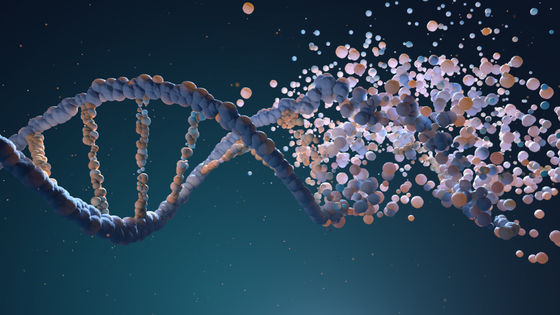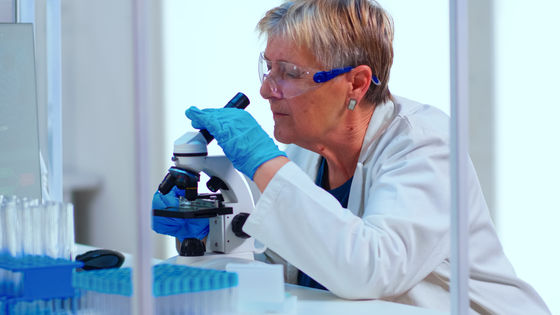The female scientist who led to the realization of the 'mRNA vaccine' that prevents the new corona was treated coldly at the university

In December 2020, the US Food and Drug Administration approved a series of new coronavirus vaccines ' BNT162b2 ' from Pfizer, a major American pharmaceutical company, and 'mRNA-1273 ' from Moderna. While the two ' mRNA vaccines ' are in the limelight as the key to a pandemic convergence, Dr. Catalin Calico , an immigrant female chemist who laid the foundation for the development of both vaccines, has not been lit. Billy Penn, a local newspaper in Philadelphia, USA, reports.
UPenn COVID vaccine researcher Karikó was dismissed and demoted --On top of Philly news
https://billypenn.com/2020/12/29/university-pennsylvania-covid-vaccine-mrna-kariko-demoted-biontech-pfizer/
The story of mRNA: From a loose idea to a tool that may help curb Covid
https://www.statnews.com/2020/11/10/the-story-of-mrna-how-a-once-dismissed-idea-became-a-leading-technology-in-the-covid-vaccine- race /
Both new coronavirus vaccines developed by Pfizer and Moderna are 'mRNA vaccines' that use messenger RNA (mRNA) , which the virus uses to synthesize proteins based on genetic information. Unlike conventional vaccines such as inactivated vaccines made by inactivating viruses and live vaccines using attenuated viruses, mRNA vaccines can be manufactured as long as the genetic information of the virus published on the Internet is available. It is free from the technical challenges faced by conventional vaccines, such as virus culture and detoxification.
While it is not uncommon for vaccine development to take more than 10 years, the new coronavirus vaccine was realized in an unusually short period of 'less than a year' because the mRNA vaccine was 'created without the actual virus.' It is said that 'possible' is a big point.

Mr. Calico, a former researcher at the University of Pennsylvania in the United States, made a great contribution to the development of this mRNA vaccine. Kariko, who received a PhD in genetics from the University of Szeged in Hungary, moved to the United States in 1985 to continue her research in the United States, where mRNA research is active. He moved to Pennsylvania with his husband and two-year-old daughter and began working as a postdoctoral fellow at Temple University in the state. However, Temple University's boss tried to deport Mr. Calico, forcing him to resign from his four-year career and move to the University of Pennsylvania.
In this way, Mr. Calico decided to continue researching mRNA at the University of Pennsylvania, but he was treated cold here as well. This is because as the research on mRNA progresses, the drawbacks of 'risk of causing an immune reaction that leads to serious health damage' and 'extremely unstable and fragile in the human body' have surfaced, and the research has been subsidized. Because I was running out of money.
In 2005, he and his colleague Dr. Drew Weissman discovered that 'the immune response can be suppressed by using modified nucleotides ' and published it as a treatise . Although Mr. Calico has achieved certain results, the University of Pennsylvania has reduced his salary instead of acknowledging his achievements, and has moved him away from his professorship.

In 2012, Kariko, who had closed her research path, gave up on the University of Pennsylvania and got a job at a German pharmaceutical venture. That company is BioNTech, which co-developed the mRNA vaccine with Pfizer. BioNTech, which welcomed Mr. Calico as Senior Vice President, overcame the instability of mRNA by protecting it with a lipid membrane and developed a new coronavirus vaccine 'BNT162b2'. In addition, another mRNA vaccine, Moderna's 'mRNA-1273', is also a vaccine developed based on Mr. Calico's research.
Kariko, who was vaccinated against the new coronavirus vaccine at the University of Pennsylvania in December 2020, said in an interview, 'I am humble and happy. I am more of a basic science researcher. I haven't studied vaccines or infectious diseases, but I've always been thinking about treatments using mRNA. With the growing interest in mRNA research, mRNA vaccine technology can prevent and treat other diseases. I hope it will be useful for you as well. '
While receiving the vaccine I reflected on my long journey by remembering my colleagues @barnathanes and @drdavidlanger who were so enthusiastic about the mRNA therapeutic use in my early days at Penn. Thank you! Https://t.co/SheAX796q7
— Katalin Kariko (@kkariko) December 23, 2020
Related Posts:
in Science, Posted by log1l_ks







